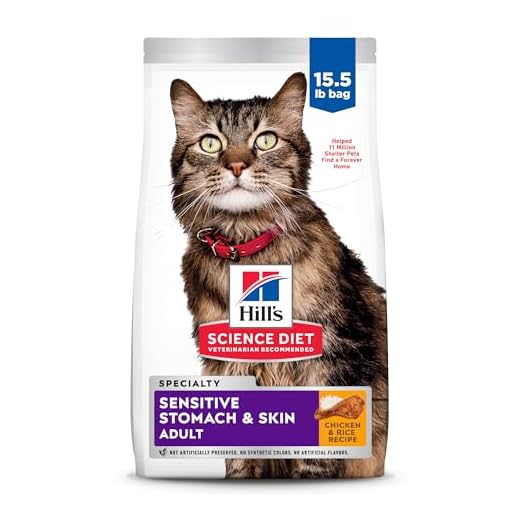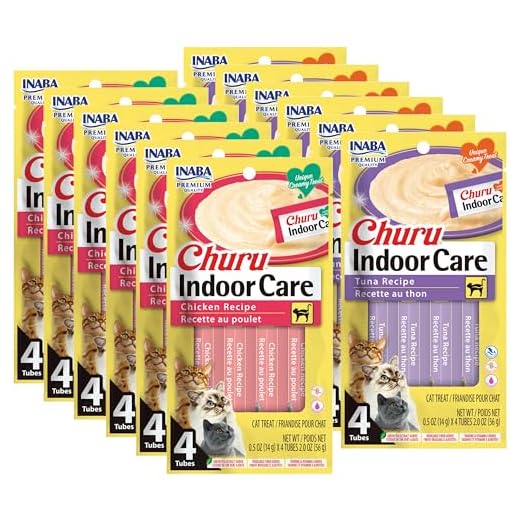

Experiencing moments of discomfort can be alarming, especially for my human. If you notice a sudden occurrence of a translucent substance being expelled, consider a few immediate factors. One likely reason could be an empty stomach; I sometimes feel the urge to regurgitate bile when I haven’t eaten for a while. Maintaining a regular feeding schedule can help alleviate this situation.
Another possibility involves dietary choices. Certain foods may not sit well with my sensitive tummy, leading to this reaction. It’s beneficial to monitor the ingredients in my meals. Switching to a high-quality, easily digestible formula might resolve the issue. Consulting with a veterinarian about my diet can provide tailored guidance.
Additionally, stress or anxiety can trigger this response. Changes in my environment, new pets, or loud noises might cause me to feel uneasy. Creating a calm space for relaxation can significantly improve my overall well-being. If these episodes persist, it’s wise for my human to seek professional advice to rule out any underlying health concerns.
Understanding the Causes of Clear Liquid Vomiting in Cats
First, check for possible dietary issues. Sometimes, eating too quickly or consuming grasses can lead to this reaction. A slow feeder bowl might help manage eating speed.
Another factor is hairballs. Regular grooming can reduce fur ingestion, minimizing the likelihood of this scenario. Consider incorporating hairball control treats into the routine.
Health conditions like gastritis or pancreatitis could be at play. If the behavior persists, a visit to the vet is crucial for proper diagnosis and treatment.
Hydration levels can also influence these occurrences. Ensure fresh water is always available. Dehydration may exacerbate gastrointestinal issues.
Lastly, stress can trigger gastrointestinal upset. Create a calm environment and observe any changes in behavior that might indicate anxiety or discomfort.
| Cause | Recommendation |
|---|---|
| Dietary Issues | Use slow feeder bowls. |
| Hairballs | Regular grooming and hairball control treats. |
| Health Conditions | Vet visit for diagnosis. |
| Hydration | Ensure fresh water availability. |
| Stress | Create a calm environment. |
Identifying Symptoms Associated with Clear Liquid Vomiting
If you’re noticing a feline friend expelling a transparent substance, it’s crucial to observe accompanying signs to assess their condition accurately.
Common Symptoms to Monitor
- Loss of appetite: A sudden disinterest in food can indicate an underlying issue.
- Lethargy: Reduced energy levels may suggest discomfort or illness.
- Diarrhea: Loose stools alongside vomiting could signal gastrointestinal distress.
- Excessive drooling: This might indicate nausea or oral problems.
- Abdominal discomfort: Signs of pain or sensitivity in the stomach area should be noted.
Behavioral Changes
- Hiding: Seeking solitude can indicate stress or illness.
- Increased vocalization: Unusual meowing may reflect discomfort or anxiety.
- Restlessness: Pacing or inability to settle can suggest distress.
It’s essential to monitor these symptoms closely. If they persist or worsen, consulting a veterinarian is advisable. Early intervention can make a significant difference in your companion’s health. If you’re dealing with aquarium issues, you might want to read about how to kill snails in a fish tank for additional tips.
When to Consult a Veterinarian for Vomiting Issues
If you notice any unusual behavior or frequency in your furry friend’s regurgitation, it’s time to seek professional help. Immediate attention is necessary if the expulsion is accompanied by blood, severe lethargy, a lack of appetite, or any signs of distress. These symptoms could indicate a more serious underlying condition.
Considerations for Timing
If vomiting occurs more than once in a short period, or if it persists for over 24 hours, don’t hesitate to contact your vet. Additionally, if your companion is dehydrated, displaying significant weight loss, or has a distended abdomen, these are red flags that warrant prompt veterinary evaluation.
Preventive Health Check
<pEven if your pet seems fine apart from occasional vomiting, an examination can help rule out potential health issues. Regular check-ups can ensure that any emerging problems are caught early, leading to better outcomes. Always trust your instincts; if something feels off, it’s better to be safe and consult a specialist.
Home Remedies for Vomiting Issues
If you’re noticing your furry friend expelling a transparent substance, there are several home remedies that can help. Start by offering small amounts of water to keep them hydrated. Dehydration can worsen their condition, so ensure they have access to fresh water at all times.
Dietary Adjustments
Consider switching to a bland diet. Boiled chicken or plain rice can be gentle on their stomach. Gradually reintroduce their regular food after a day or two, ensuring it’s high-quality and suitable for their needs. Avoid giving them any treats or table scraps during this time.
Herbal Remedies
Ginger is a natural remedy that can soothe the stomach. Try offering a small amount of ginger root or ginger tea mixed with water. Peppermint may also help calm digestive issues. Always consult with a vet before introducing new foods or herbs, even natural ones.
Monitor their behavior closely. If they appear lethargic or show signs of distress, it’s crucial to seek professional help. Keeping a record of their eating habits and any changes in their behavior can provide valuable information for your veterinarian.
Dietary Changes to Prevent Vomiting
Switching to smaller, more frequent meals can significantly help maintain a stable digestive system. Instead of two large portions daily, opt for four or five smaller servings. This reduces the likelihood of stomach irritation and allows for better nutrient absorption.
Incorporate high-quality, easily digestible food into your diet. Look for options containing limited ingredients and avoid those filled with artificial additives. Ingredients like turkey, chicken, or fish are excellent choices, while grains can be problematic for some.
Hydration Matters
Always ensure access to fresh water. Dehydration can lead to digestive disturbances, so keeping a clean bowl filled with water is essential. Consider wet food as an alternative to increase moisture intake, which aids in digestion.
Introduce New Foods Gradually
When trying new flavors or brands, introduce them slowly over several days. This allows your stomach to adjust without overwhelming it. Mix a small amount of the new food with your regular meal and gradually increase the ratio.
Finally, avoid sudden changes in your diet. Consistency is key to reducing digestive upset. Sticking to a routine helps your body adapt and minimizes the chances of discomfort.
Monitoring Your Feline’s Health Post-Vomiting
Pay attention to hydration levels immediately after your furry friend vomits. Ensure fresh water is available, encouraging them to drink. Watch for signs of lethargy or refusal to eat, as these may indicate underlying issues.
Track the frequency of vomiting episodes. Keeping a detailed log helps identify patterns, which can be vital for your veterinarian. Note any changes in behavior, such as increased hiding or vocalization, which might signal discomfort.
Observe the consistency and color of any subsequent vomit. Variations may provide clues about what’s happening internally. If vomiting persists, consider dietary adjustments and monitor their reaction to new food.
Assess their litter box habits. Changes in urination or stool may reflect broader health concerns that need addressing. If you notice any abnormalities, it’s time to reach out to a vet.
As a Scottish Fold, I’ve learned the importance of regular grooming. Maintaining a clean coat not only enhances well-being but can also reduce hairballs, which could lead to stomach issues. You might find the best dry shampoo for cats useful for keeping my fur in check between baths.
Always trust your instincts. If something feels off, don’t hesitate to consult a professional. Timely intervention can make all the difference in ensuring a happy, healthy life.
FAQ:
Why is my cat vomiting clear liquid?
Vomiting clear liquid in cats can occur for several reasons. One common reason is an empty stomach. When a cat’s stomach is empty, it may produce gastric fluid, which can be expelled as clear vomit. Additionally, if your cat is experiencing nausea due to dietary indiscretion, stress, or illness, it might also result in vomiting clear liquid. If this behavior persists or is accompanied by other symptoms like lethargy or diarrhea, it’s best to consult a veterinarian for a thorough examination.
Is clear liquid vomit in cats a sign of a serious health issue?
Clear liquid vomit can be indicative of various health issues, but it doesn’t always mean something serious. It could be as simple as your cat having an empty stomach or reacting to a minor digestive upset. However, if the vomiting continues frequently, or if you notice other concerning signs such as changes in appetite, weight loss, or behavioral changes, it is advisable to seek veterinary care. A vet can help determine if there is an underlying condition such as gastrointestinal problems or infections that need to be addressed.
What steps can I take if my cat keeps vomiting clear liquid?
If your cat is frequently vomiting clear liquid, there are several steps you can take. First, monitor your cat’s eating habits and ensure they are eating regular meals, as an empty stomach can lead to vomiting. Consider feeding smaller, more frequent meals to prevent this. Also, observe for any other symptoms that may indicate illness. If vomiting persists for more than a day or two, or if you see any additional symptoms like diarrhea, lethargy, or changes in behavior, schedule a visit to your veterinarian. They may recommend diagnostic tests to identify the cause and suggest appropriate treatment options.







